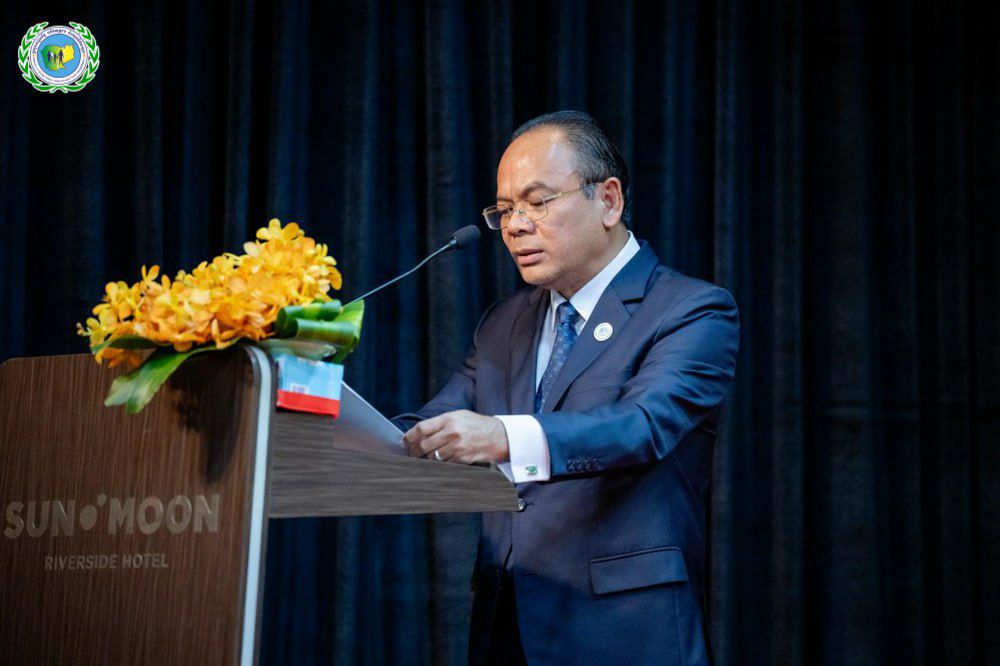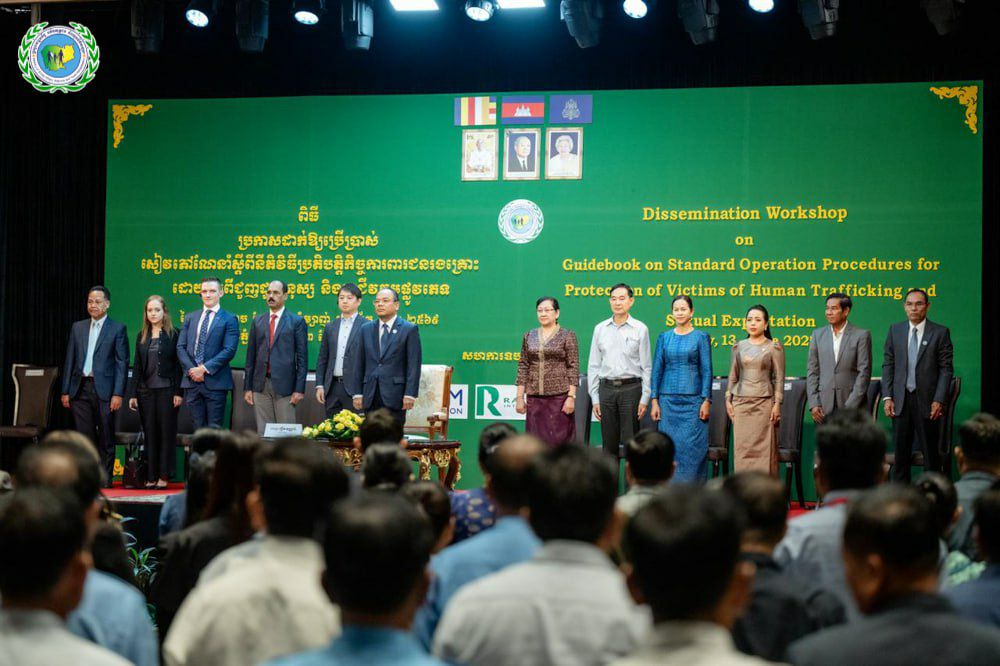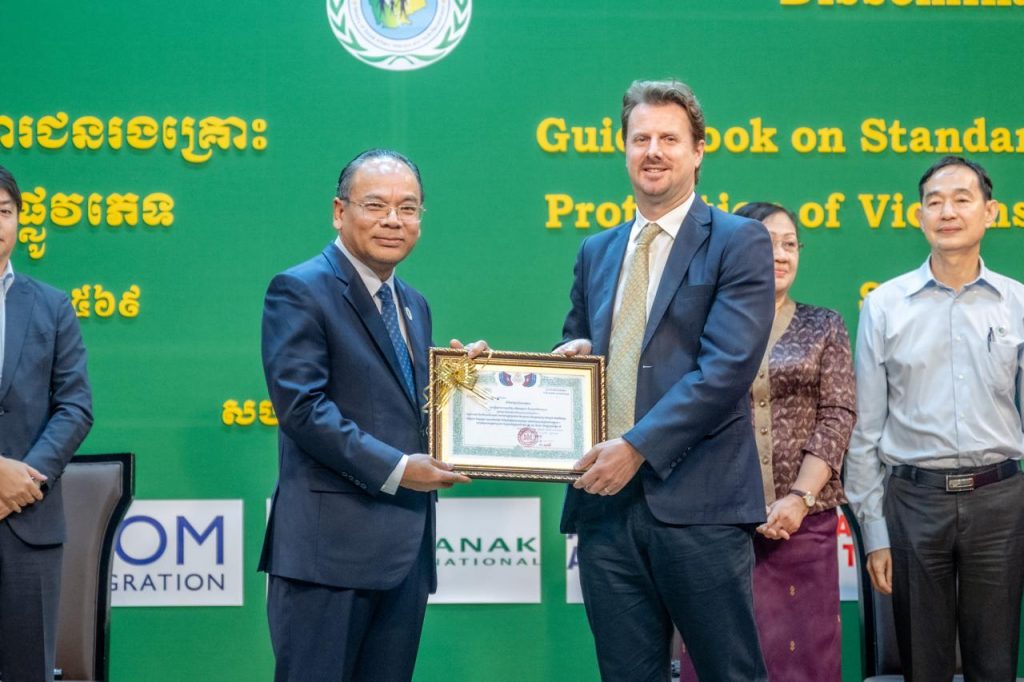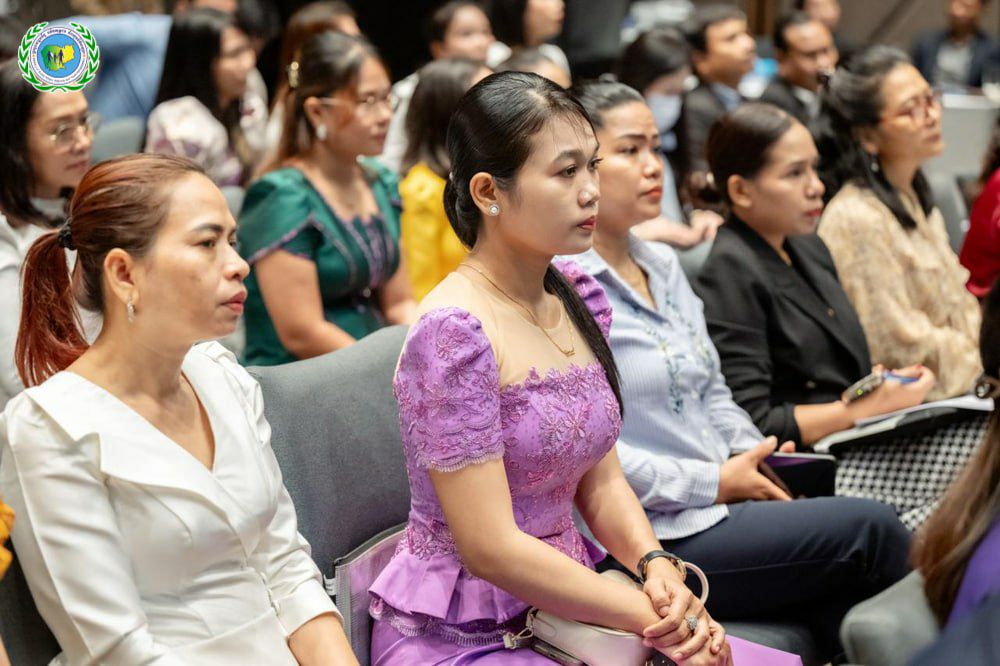Frontline responders play a critical role in identifying and supporting victims of human trafficking and sexual exploitation.
To ensure law enforcement, social service providers and NGOs are equipped with clear, consistent procedures for handling victims of trafficking and sexual exploitation, the Cambodian Ministry of Social Affairs, Veterans and Youth Rehabilitation (MoSVY) has officially launched a new Guidebook on Standard Operating Procedures (SOPs) for victim protection – with support from the Australian Government funded ASEAN-Australia Counter Trafficking program, the International Organization for Migration (IOM), and Ratanak International.
The Guidebook provides practical guidance for frontliners to refer presumed or identified victims of trafficking to appropriate protection services, how to appropriately handle victims and embeds the Do No Harm principle to ensure victims are treated with dignity and respect throughout the process. It also strengthens Cambodia’s coordinated response to trafficking and sexual exploitation, particularly for vulnerable groups such as children, migrant workers, and persons with disabilities.
The launch event, held in Phnom Penh (13 June), brought together over 150 participants from national ministries, provincial departments, law enforcement, civil society, and international partners.
In his keynote remarks, H.E. Nhek Vannara, Secretary of State at MoSVY, described the Guidebook as a milestone in Cambodia’s counter-trafficking efforts and encouraged frontline responders to integrate its procedures into their planning and day-to-day work.
The Guidebook builds on earlier consultations held in 2024, supported by the program and IOM, with workshops to gather inputs from central and provincial officials, non-government, and other institutions. These sessions engaged over 100 representatives from all 25 provincial departments of MoSVY, and helped shape the Guidebook’s content and applicability.
The launch comes at a critical time, as trafficking into online scam operations continues to rise across Southeast Asia, driven by expanding organised criminal networks and the abuse of technology. Strengthening frontline capacity and coordination is essential to ensure victims are identified early and receive the protection and support they need.
By aligning efforts across government, civil society, and international partners, Cambodia is taking a meaningful step towards building a more coordinated, survivor-centered response.




